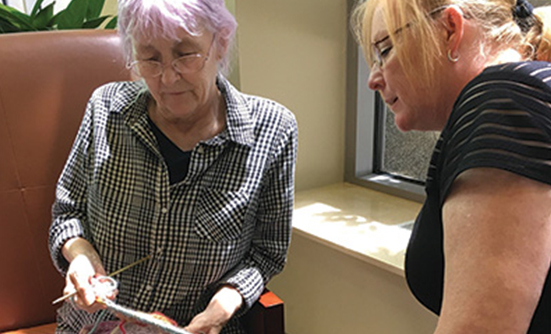One of the most challenging emotions after receiving a diagnosis of cancer is the feeling of loss of control. Suddenly, you are thrust into a “foreign country” with its own language and customs, all with the intention of treating the cancer.
Integrative oncology promotes the physical, mental, and spiritual well-being of patients with cancer to preserve or improve their quality of life during treatment. Integrative modalities can offer opportunities to support the cancer journey, reduce the side effects, provide support to family members and caregivers, and help the patient gain a sense of control.
A Partnership with Conventional Medicine
Integrative medicine provides supportive treatment options that work in partnership with conventional medicine. Integrative treatments don’t replace conventional, evidence-based treatment, but they provide support during and after cancer treatment.
Integrative treatments are based on evidence from research and are growing rapidly in oncology. The 3 main parts of integrative oncology are:
- Partnering with conventional evidence-based treatment, such as surgery, chemotherapy, and radiation therapy
- Integrative medicine methods, such as yoga, Tai Chi, meditation, massage, and acupuncture
- Lifestyle modifications, which include healthy diet, exercise, limiting environmental toxins, and stress reduction
The main goals of integrative oncology are to:
- Enhance the treatment of cancer
- Reduce side effects of cancer treatment
- Reduce the risk of other health conditions and of cancer recurrence (return)
- Empower the patient to take an active role in his or her healthcare and decision-making
It is very important to look for well-trained, certified providers, preferably those with specific training in treating cancer, and in integrative health training. Integrative care options include consultations with physicians who have training in integrative medicine, such as massage therapists and experts in acupuncture, yoga, Tai Chi, and meditation.
Other integrative care practices include art therapy, music, and writing. Registered dietitians with training in oncology and exercise physiologists are also important components of the integrative oncology care team. Several cancer centers in the United States include these services today.
Integrative Oncology Physicians
Think of cancer as a weed. The oncologist’s job is to remove the weed. The integrative physician’s job is to build up the soil to encourage more healthy plants to grow.
It is important to seek physicians with specific integrative medicine training. Integrative oncology physicians should have an up-to-date knowledge of cancer treatments, and they should be connected with a team of oncologists, surgical oncologists, and radiation oncologists. There are several reputable training programs for integrative medicine throughout the country.
The integrative oncology physician consultation focuses on recommendations for specific dietary changes, smoking cessation, exercise programs, and the use of supportive interventions, such as massage, acupuncture, healing touch, yoga, meditation, Tai Chi, and Qigong. Often, specific integrative interventions can help manage your cancer treatment side effects, which will enhance the conventional medicine treatment. Finding strategies to better manage stress is also part of the consultation.
Dietary Supplements and Herbs
Many patients with cancer self-medicate with supplements, herbs, and vitamins. Although these supplements are readily available over the counter, and many are labeled “safe” and “natural,” some may either make chemotherapy more toxic or actually less effective. Research is not available on every supplement.
Be sure to tell your oncologist and integrative physician what supplements you are taking. Physicians often recommend that patients stop taking specific supplements until their cancer treatment has finished. Integrative physicians can guide the safe use of appropriate supplements, vitamins, and herbs to support your health.
An important benefit of partnering with the integrative medicine team is that you can become an active participant in your healthcare decisions, which can be very empowering. Knowing there are active steps you can take to manage your treatment allows you to more confidently navigate through the cancer journey.
Patient Resources
American Cancer Society
www.cancer.org/acs/groups/cid/documents/webcontent/acspc-041660-pdf.pdf
National Center for Complementary and Integrative Health
http://nccih.nih.gov/
National Cancer Institute
http://cam.cancer.gov/health_programs.html















